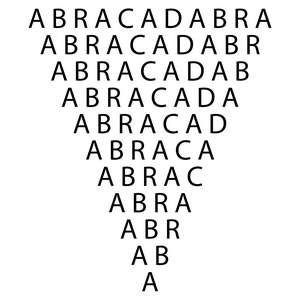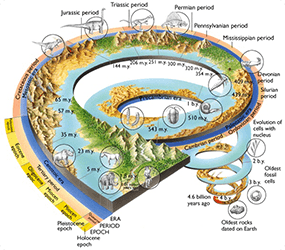ARE WORDS MAGICAL?
We all know, or at least understand, that the words we use have tremendous power but most people wouldn’t go so far as to say that words are magic… or would we?
Ok, on one hand, we have the scientific skeptics who believe that magic doesn’t exist and, at best, ‘magic‘ is just an illusion of some sort.
And, on the other hand, we have believers of magic. These people, although with little to no proof that magic exists, believe in some way that magic is possible.
For me, it all depends on the definition of the word itself.
I have uncovered many definitions of the word magic on the internet but one in particular resonated with this article:
Enchanting or enthralling use of words; a powerful effect achieved by means of words. – Oxford Dictionaries definition of magic
Right, let’s get down to brass tacks. I lived in Italy for ten years and as a consequence my second language is Italian, so I have the fortune to be able to make comparisons between the English and Italian languages.
A MAGIC SPELL
In Italian the word ‘incantation’ is ‘incantesimo’ but both words have become almost obsolete in their respective languages.
Italians now say ‘una magia’ and English speaking people say ‘a magic spell’ or, simply, ‘a spell’.
Hmmm… interesting, a magic spell.
In order to make a word, any word, we must first do or know the spelling of that word.
This would imply that every word is a type of spell or a form of spelling.
Whether or not this means that every word is a magic spell is up to interpretation, but I would argue that every word holds within it the power of a [magic] spell, it all depends how you use your words.
If you use your words negatively or use negative words I would go so far as to say that you are negatively influencing your thoughts which, in turn, influence your reality.
Our thoughts and words program our minds into certain ways of thinking.
Let me give you an example of how we use our words in negative ways.
I’m going to refer to Italian first then we’ll compare the English version showing us how our languages are set, by default, to negative.
THE END OF BREAD!
In Italian, a loaf of bread has two ‘culi’ which means ass/bum/bottom/butt/arse, etc.
So at the dining table, I regularly heard “I want the butt of the bread” or “pass [me] the ass” etc.
At face value, it seems almost cute, or at worst banal (pun intended), but if you compare the use of the word ‘ass’ to its counterpart, ‘head’, we can make some obvious comparisons and see the, almost, negative connotations.
We use our head for thinking, reasoning, and understanding while, on the other hand, we use our asses for…. well I’ll leave that to your imagination.
When we take the English version of this saying we have two sayings that I’m familiar with. One is ‘the heel of the bread/loaf’ and, where I come from, we also call it ‘the end of the bread/loaf’.
We, native speakers, don’t think anything of these expressions lest we take careful consideration or have the chance to compare them to other languages.
In Italy bread is a national institution, more so than, say, the church!
Yes it’s true, most Italians are more religious about bread than about religion itself (Italians frequent the baker daily, while most church-goers only visit the church weekly).
Bread can be found at the table at almost every meal (not always for breakfast, although in the summer fresh figs can easily be spread on a slice of bread for brekkie).
Imagine, one morning the Italians woke up to find out it was the end of the bread.
Chaos would ensue, every Italian would rush to their local baker and clear them out of stock.
I bet there would be country-wide panic and riots in the streets if the Italians couldn’t get their daily fix of bread!!!
Now, in my house, I no longer use this expression of lack, sometimes my loaf of bread has two starts or, sometimes, a start and an end to make the situation more balanced.
I CHOOSE TO REMEMBER!
It doesn’t stop there, we have this uncanny knack of negatively programming our minds through the spells [words] we use.
For example, when something slips your mind your default setting/programming is to say, out loud, “I can’t remember”.
Here we have a prime example of how our words influence our thoughts or you might even say influence our reality as our thoughts shape our reality.
When a memory doesn’t come to you immediately it’s futile to use this expression as it won’t help you to remember what you want/need to remember.
Our thoughts shape our reality.
Five years ago I changed the arrangement of letters [spells] I use when trying to remember something, instead of saying “I can’t remember” I started saying “I choose to remember”.
I simply say “I choose to remember” and continue with my dialogue and 98% of the time it comes to me in seconds (it still surprises me to this day).
I had one instance where I used this method and the memory came to me after two days, and that was a rarity as it was something I was trying to remember that I had only heard once before but it came to me after two days nonetheless.
These words seem to have a magical effect on my mind memory!!!
The empowering word ‘choose’ makes a big difference to the negative ‘can’t’, try it out I guarantee almost instant results.
YOUR YEARS ARE OVER!!!
Let me give you a third (after all 3 is the magic number, so they say) and final example of how our words can influence our thoughts.
Again I’m going to use an example of the Italian language first: In Italian when it’s your birthday you are said to ‘finisce i anni’ which in English translates to ‘finish your years’.
This, of course, is referring to ‘finishing’ your prior years but if you think of it literally it means to finish your life!
When your years are finished, your life is over! This is not exactly a positive influence on your thoughts.
English is not much better, we say “I am 38 years old”, which means I’m old 38 years. This is programming our minds to believe that we are getting old or more decrepit.
There are those who try to change their reality like my grandparents, who are now on their cosmic vacation, who used to say they were “70 years young”.
This is a better choice by far, but I’d go that one step further by saying that “I have 38 revolutions around the Sun”.
With every passing revolution I gain momentum, get quicker, become more awake (to myself), and get that little bit wiser (never forgetting that the more I learn the less I know!)
I have put a bit of thought into this affirmation as time itself isn’t linear.
TIME IS LINEAR… OR IS IT?
We are taught by the history books at school that time is linear, over here on the left we have the big bang and the dinosaurs, while over here on the right we have ourselves in the present with the internet and all these wonderful, futuristic things.
Well, what if I was to propose that time isn’t linear but in fact elliptical?
In fact, we actually measure our time on an elliptical basis, one full year (a unit of time) is one full revolution of the Earth around the Sun and the Earth follows an elliptical path/orbit around the Sun.
One whole day (a unit of time) is a full revolution of the Earth on its axis and the Earth isn’t actually round (another generally accepted “universal truth”) it’s actually an ellipsoid, which basically means a sphere that is slightly flattened at the poles.
We also have the old saying ‘history repeats itself’, which is the same saying they have in Italy ‘la storia si ripete’. Why would we have this saying if time was linear…?!?
The way the timeline should look…
So doesn’t it make sense to say that you’re augmenting revolutions around the Sun?
Why must you get older, when you can get wiser instead?
QUESTION ‘UNIVERSAL TRUTHS’
You see we have to question the dogmas of today. Before us people, during the middle ages, generally accepted that the Earth was flat and at the centre of the universe.
Even though the ancient Greeks and Egyptians had already understood that the Earth was round and not at the centre of the universe the dogma during the middle ages was that the Earth was flat and at the centre of the universe.
Great minds of that time, like Copernicus, risked their careers and lives by going against the dogma of their time by proclaiming the Earth was round and revolved around the Sun.
We have to question what we believe to be ‘universal truths’.
Most people believe that words are simply words, I propose that they are much more than that. Every word you give life to is a little magic spell that you cast into reality.
Put some of this into practice in your day to day life and you will see and feel the difference. People may think you’re crazy but, remember, all of the world’s geniuses who are now on cosmic vacation were considered ‘crazy’ when they were alive!!!







